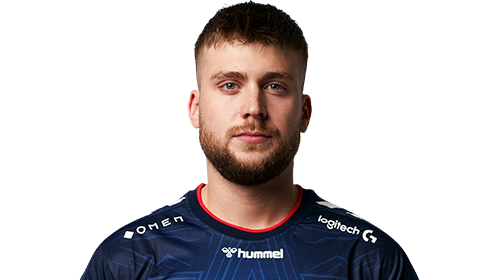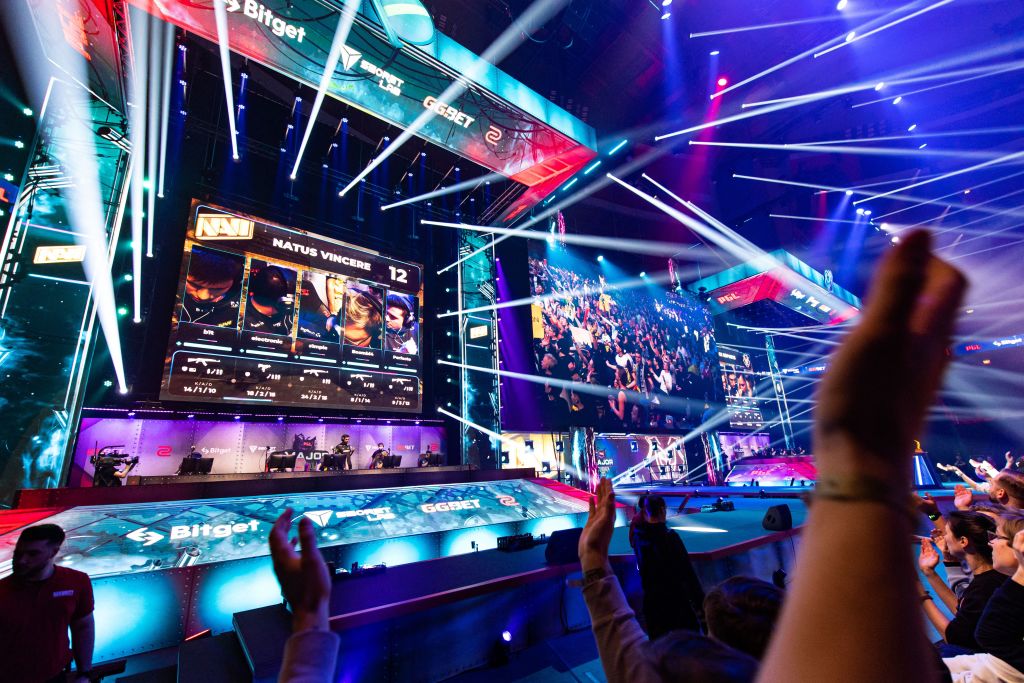CS: GO pro leaves team after suffering traumatic injuries in Maltese nightclub fight
Kristian 'k0nfig' Wienecke sustained a badly broken ankle and a skull fracture.

The Counter-Strike: Global Offensive player Kristian 'k0nfig' Wienecke, a Danish national, has left esports organisation Astralis by mutual consent after an unpleasant incident in Malta. He was playing in the ESL Pro League before, on September 20, Astralis said he would miss upcoming matches due to a "complicated ankle fracture."
Rumours quickly began swirling around the CS: GO community that things were even worse than that, before esports site Jaxon reported, based on an eyewitness to the incident, that Wieneke had been "involved in a quarrel that turned into a fist fight."
Wienecke initially played down this report but, a few days later, eyewitness Michiel de Jong gave a fuller version of events. According to this account, reported by Jaxon, the promoter spat in Wienecke's face, kicked him, and then went back into the nightclub as bouncers got involved. Shortly afterwards the promoter re-emerged, Wienecke ran after him and, per de Jong: "They went into a fight with fists and kicks and went to the ground when k0nfig shouted that he broke his leg."
Wienecke has now released a lengthy statement that is broadly in-line with this account (thanks, The Loadout) but goes into much more detail. He opens by calling the last few weeks "the hardest time of my life" where "I've been scared, broken, and completely lost". Thanking people for their support, Wienecke goes on to explain that, following a disappointing loss, he and others went out to drown their sorrows before leaving Malta the next day.
As the night wore on they ended up at a nightclub in Paceville. Wienecke went off to get something to eat while his teammates went in, then returned around 30 minutes later and walked up a staircase to the club's entrance
Long story short, the guy in charge on the door takes exception to Wienecke, calls him a "tattooed loser", and says he's not getting in without paying 500 Euro for a table. "He was aggressive and I felt humiliated so we got into an argument," says Wienecke.
"I was so scared that I was about to die. I remember feeling like I was watching my own body from above laying there."
Kristian Wienecke
"I told him he was the loser for standing in a nightclub queue and feeling better than everyone else and then suddenly he spat me directly in my face and kicked me straight in my face. He was standing several steps over me on the staircase, so it was like a kicking to a football. It made me fall down the stairs and sprain my foot. It hurt like hell, but adrenaline, fear and confusion had completely taken over my body, so I didn’t notice it at first. I just remember feeling confused. Then after he ran inside the club with the bouncers in front of him. My mouth was swollen, my leg and foot hurt as hell."
Keep up to date with the most important stories and the best deals, as picked by the PC Gamer team.
Wienecke sat down on the pavement gathering his thoughts when the same individual left the nightclub in what appeared to be a hurry.
"I felt so angry and unfairly treated so I humped after him and caught up with him further down the road to confront him," writes Wienecke. "I regret this terribly. I should have walked away. I should have just gone home and licked my wounds because then none of this had happened. When I caught up with him, I said I would report it to the police and he immediately spat at me once again and cursed at me which infuriated me. We got into [a] fight, and he broke my leg and I fell to the ground. He was kicking me multiple times in my head while I was laying down.
"I tried getting away from the situation but I couldn’t because of the broken leg. I tried to run away but I couldn’t put weight on my right leg. It just snapped and broke completely, dislocating my foot as well. He stopped kicking me because I dragged him down to me and I had to do self-defence to make him stop kicking me."
By this time other parties had separated the pair, and someone called an ambulance (Wienecke also claims the promoter had stolen his phone at some point).
"I was so scared that I was about to die," writes Wienecke."I remember feeling like I was watching my own body from above laying there."

"It felt so fucking bad that I just wanted to delete everything and just give up. I couldn’t stop crying. I was in my own bed feeling empty."
Kristian Wienecke
Wienecke spent several days in a Maltese hospital, but the doctors couldn't properly re-set the break and surgery was required, which he elected to have back in Denmark. At this point, however, the medical team noticed "a fracture in my orbital wall" (one of the four bones surrounding the eyeball) that would require he stay in Malta for up to four weeks.
"It broke my heart. I was so scared I started sweating and crying," writes Wienecke. "Everything I wanted in the whole world was just to go home and get surgery. I knew if I could get home my mood would be so much better and I would feel safe and have people that love me close."
The nature of the orbital wall fracture, however, meant that in the Danish doctors' opinion Wienecke would be safe to travel, and on Thursday 22nd September he flew home, and went straight to hospital from the airport. "They tried to put my foot in place but they couldn’t do it," writes Wienecke. "I have never experienced so much pain."
The player goes on to detail the surgery that followed: holes drilled in his shin and foot, the insertion of titanium rods, re-attaching a foot muscle that had torn, a metal plate screwed-in to the shin. The surgeries were successful, but "It felt so fucking bad that I just wanted to delete everything and just give up," writes Wienecke. "I couldn’t stop crying. I was in my own bed feeling empty."
Wienecke says that throughout this time he wondered if this was the end of his career, but "this is nowhere near the end for me. I’m going to war against myself now. Fuck no I’m not going anywhere." He states his intention to "make this downfall into something positive" and "become the god-tier Counter-Strike player that I know I can be."
As regards the promoter, the local authorities in Malta are investigating and Wienecke is being treated as a victim. He says he tested negative for drugs at the hospital, but claims the authorities have told him the promoter tested positive for drugs.
Wienecke ends by writing:
"Actions have consequences and I fully accept responsibility for mine. Now and in the future. To all of you out there, here's the lesson which I've come to learn the hard way. Turn the other cheek if you can. Walk away. Violence solves nothing. It is never worth it!"
Well, if the above account doesn't convince you that getting into random fights is a bad idea, nothing will. Reading Wienecke's account, I want to suggest that this story has two villains: our allegedly drug-addled and violent promoter, and the esports organisation that's been so quick to wash its hands of the player. Wienecke is obviously not free of blame here (he'd been drinking that night, and re-initiated the confrontation after being attacked) but he is undoubtedly the victim, and has suffered enormous setbacks both physically and professionally.
"Kristian 'k0nfig' Wienecke is going through a tough time with issues he does not want to discuss publicly; we fully respect that," writes Kasper Hvidt, director of sports, in Astralis's official statement. "It has been affecting his ability to contribute to the team and we have had ongoing and constructive talks with Kristian, who needs time to focus on his private life."
So long and thanks for all the memories, eh? The topic of how these big esports organisations deal with the many young hopefuls who pass through their system is a perennial one: the rights and wrongs of youth training systems, and how prospects are managed, is still not a settled matter in football nevermind Counter-Strike.
But when one of its players has suffered a vicious assault like this, it feels callous and I would even say cruel for Astralis to compound this by cutting them off so quickly (whatever the language may say about the two "agree[ing] to a cancellation"). Wienecke has suffered enormously here, and it's easy to forget he's only 25 years old. At times like these you need friends and support, and now he has that: in the future, perhaps, Wienecke will make Astralis regret its decision.

Rich is a games journalist with 15 years' experience, beginning his career on Edge magazine before working for a wide range of outlets, including Ars Technica, Eurogamer, GamesRadar+, Gamespot, the Guardian, IGN, the New Statesman, Polygon, and Vice. He was the editor of Kotaku UK, the UK arm of Kotaku, for three years before joining PC Gamer. He is the author of a Brief History of Video Games, a full history of the medium, which the Midwest Book Review described as "[a] must-read for serious minded game historians and curious video game connoisseurs alike."

